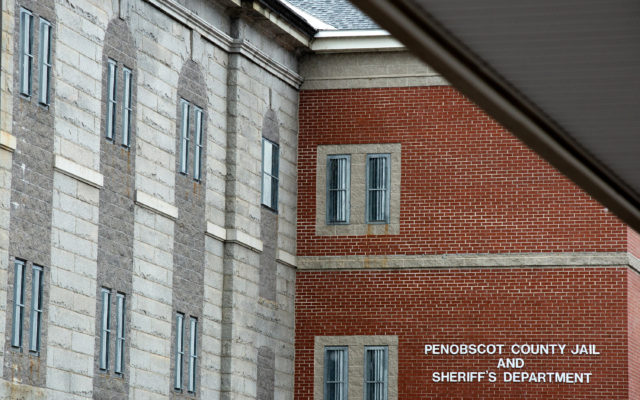
Penobscot jail board’s 1st report didn’t address inmates’ mental health as law requires
By Judy Harrison, Bangor Daily News Staff
The Penobscot County Jail’s outside oversight board approved its first annual report Jan. 28 but it does not include recommendations about the jail’s operations or on better serving inmates with mental health diagnoses, which state law requires.
Instead, the Penobscot County Jail Board of Visitors’ three-page report, to be given to county commissioners on Tuesday, focuses on how the committee operates internally, not on how the jail runs.
The 2003 law that requires a board of visitors for each county jail requires that the boards inspect the jails they oversee and “make recommendations to the sheriff with respect to inmates who are mentally ill.”
In Penobscot County, the board’s focus “shall be on systemic issues” including suicide prevention, overcrowding, inmate access to programs and visitation, and identification of gaps in service and efficiencies, according to a 2019 document from Sheriff Troy Morton outlining the board’s operations.
Pat Kimball, chair of the 12-member board, said Friday that the group — which has been in place since September 2019 — is still getting organized and does not yet have enough information to make specific recommendations about jail operations. Next year’s report will address problems inmates and staff identify, she said.
“It is the intent of the Board of Visitors to work as a community to ensure the safety of our jail, and we are moving in this direction,” Kimball said. “Board members are focused on conducting confidential interviews by phone and video with as many inmates as possible.”
The Penobscot County board formed after a former inmate pointed out that the state requires each county jail to have such a board. Like Penobscot, a handful of other counties have only recently formed such boards, and the Maine Department of Corrections recently updated its standards for county jails to require boards of visitors.
The department does not know which counties have them set up and which don’t.
As the Penobscot County board looks toward inmate interviews, it has developed a set of general questions to ask them but has not yet decided how it will organize and report its findings to the public.
“We want to be able to report to the public our findings but at the same time protect the confidentiality of the persons being interviewed,” Kimball said.
Kimball did not know how many inmates had been interviewed, but board member Ashley Homstead, a social worker, reported during Thursday’s meeting that the most common complaints she’d heard from inmates are about problems with the jail’s phone system and lawyers not communicating often enough with clients awaiting trial at the jail.
Homstead did not say how many inmates she had spoken with, but said most reported that staff treated them respectfully and praised the food.
Penobscot County Sheriff Troy Morton had no complaints about the report from what he called a “dedicated and very diverse group of volunteers.”
“I was encouraged by the recommendations,” he said. “Developing a data collection system while protecting inmate privacy is important. This will help us better track and share outcomes. It should be noted, when recommendations or input was shared after interviews, they were addressed then.”
The report did praise the sheriff, his staff and inmates for how they responded to the COVID-19 pandemic, “during a time of little knowledge or guidance as to what will keep us safe.”
The pandemic has led to large virus outbreaks in correctional facilities across the country, and a handful in Maine. The largest at a Maine county jail infected 48 York County inmates and 18 employees last summer.
The board of visitors is supposed to meet quarterly, according to the 2019 document outlining how it’s supposed to operate, but met three times in 2020. On Thursday, the board’s first meeting in 2021, members tentatively set meeting dates in April, July and October.
The law sets few requirements for the boards — only that the sheriff appoint at least five members, that they inspect the jail they oversee and that they make recommendations regarding inmates with mental health diagnoses.
While some counties, including Cumberland and York, have had boards of visitors for years, others, like Penobscot, have been organized more recently.
Boards in Franklin and Androscoggin counties started meeting in 2019 and 2020, respectively. In Piscataquis County, the board was set up last year but members have not yet toured the jail due to coronavirus restrictions.
Lincoln and Sagadahoc counties, which jointly operate Two Bridges Regional Jail in Wiscasset, expect their recently appointed board to meet in March, according to Lincoln County Sheriff Todd Brackett.
Unlike Penobscot County’s three-page report, the first report from the Franklin County Board of Visitors, filed in July, is 23 pages long and includes detailed information about the facility and its programs as well as recommendations for improvement.
Sheriff Scott Nichols, in a separate document, replied to those concerns and recommendations and said the county was addressing many of them.